KRRS at the FAO: Building Peasant Agroecology and Peasant Markets
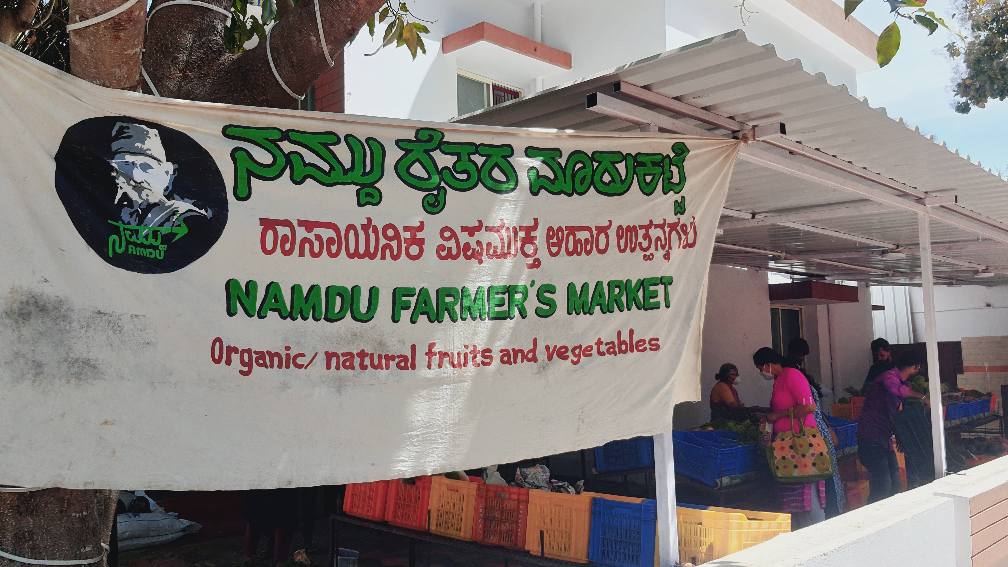
Karnataka State Farmers Association (KRRS) takes its experience of peasant-to-peasant training and producer co-ooperative to FAO, calls for more institutional and State support at all levels for peasant agroecology.
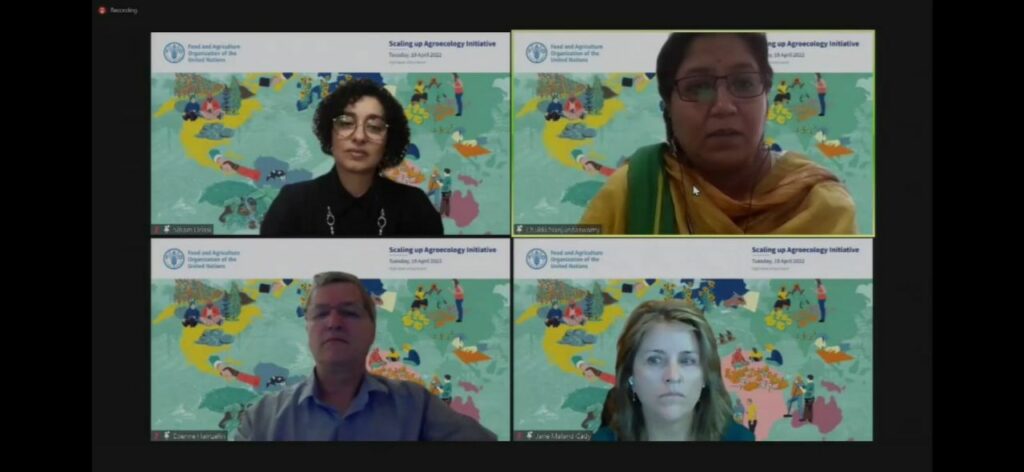
On the 19th of April, The Food and Agrcilutural Organisation (FAO) held a high-level virtual event on Agroecology, where it invited food producers’ organisations to present the grassroots experiences of implementing and promoting agroecological practices. Chukki Nanjudaswamy, a senior leader of the Karnataka Rajya Raitha Sangha (KRRS) with support from the International Planning Committee for Food Sovereignty (IPC) presented the movement’s experiences of self-led agroecology transition efforts by producers organizations in Karnataka, India.
Produced below is the full text of her intervention, during the event.
Question 1: could you share with us in which ways have producers and their organizations successfully partnered with governments, research and academic institutions and other stakeholders to foster agroecological transformations through co-created knowledge that connect research, action and transitions? And what were the enabling conditions or factors that made possible these fruitful cooperation?
In India, there are several self-led agroecology transition efforts by producers organizations themselves but they are not part of collaborations with governments or research organizations…often times working in a spontaneous and adhoc manner.
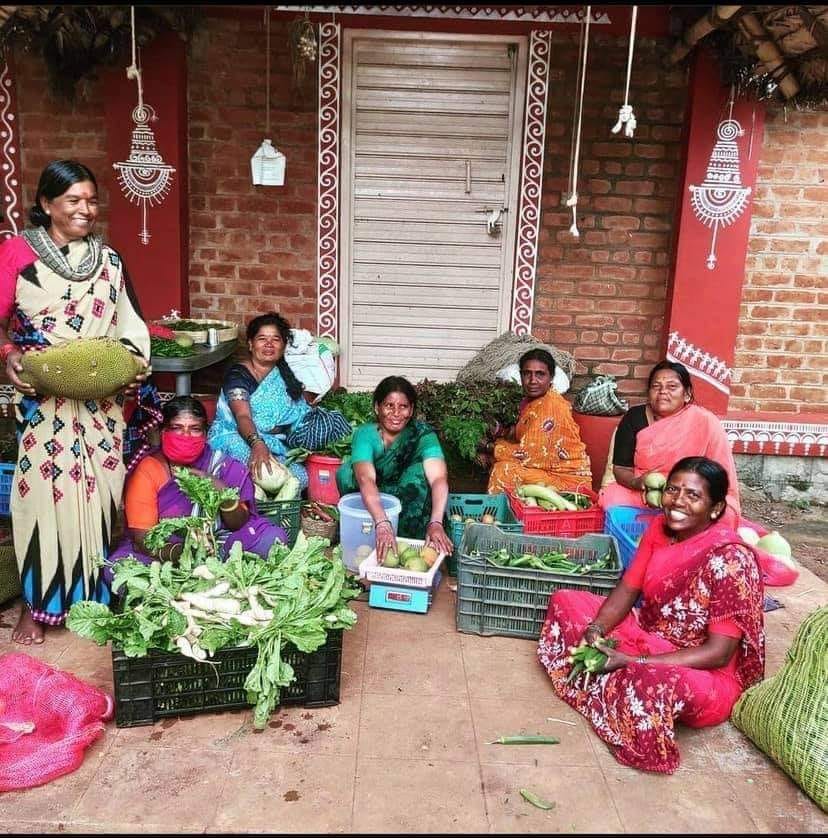
However, more recently there are examples of such collaborations that have been led by state governments in India ever since there has been a growing shift in policy towards agroecology.
One example is the Andhra Pradesh Community Managed Natural Farming program where the state is supporting producers organizations to transition to agroecology.
One of the ways in which it is doing that is through:- Group approaches and Farmer to farmer extension model facilitated by the government : here, the farmers themselves are the teachers for other farmers groups (producer organizations). This is a pedagogical model first popularized by the FAOs very own farmer field schools. The trainings take place in a horizontal way – and through group approaches, rather than individualized extention models. This supports group learning. And this is especially helpful for women’s groups who find community and solidarity through their groups. So support for group training is one way in which partnership between producers and government can be successful.
The enabling condition here – is the presence of producers organizations – in the form of womens groups and other producer groups in the state- I believe that its important to work with existing orgnaizations, which serve as a social and orgnaizational fabric for agroecology to spread. Another enabling condition is- the presence of expert agroecological farmers- who should be supported so they can engage in training activities along with a facilitator to support them. Such farmers are key resources and centers of knowledge for other local farmers.
We do understand that agroecology is not a recipe and it can’t be transmitted from one part of the world to another.. it has to be locally taught and shared.. so we have to recognize and support the existing teachers that are there in a particular locality.
Another example that I am personally part of – is Namdu producers collective.
This is a self-organized and led producers collective by farmers and youth themselves, which emerged at the heels of the first wave of the pandemic.
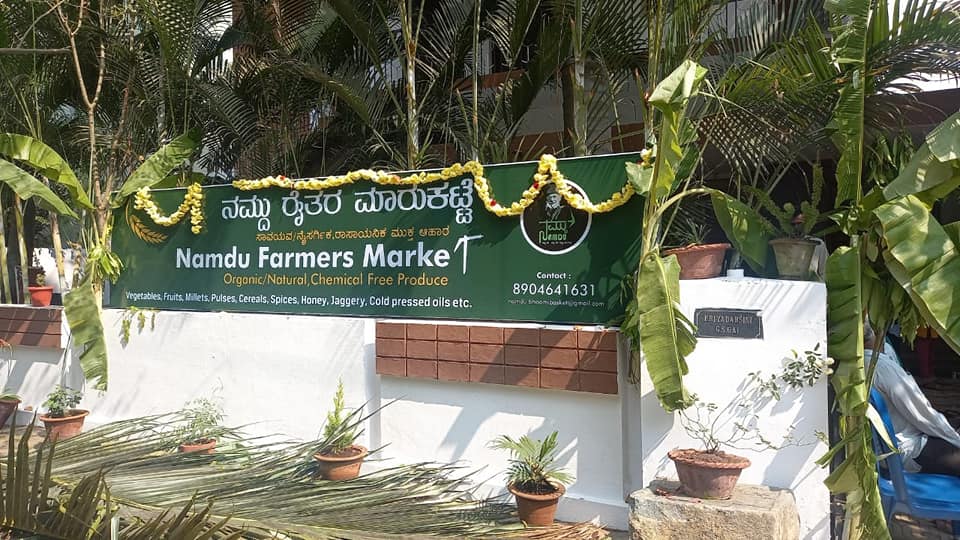
Here the farmers org (KRRS) along with allies such as feminist activists and urban consumers got together to create an agroecological marketing effort (an innovative business model) – in rural areas of Karnataka as well as a produce subscription service (a CSA like model) in urban centers like Mysore. The farmers orgs were supported by getting fair and guaranteed market for their produce, while consumers were also guaranteed access to chemically free produce. This is still at experimental stages, however we are already seeing success.
The stakeholder here will be consumers. Its important to see how urban consumers have played a key role here- they are helping Namdu reach urban markets, they are also organizing other consumers in their own apartment blocks where they live – they are helping to aggregate farmers produce and are distributing this produce to other consumers in their neighborhoods.
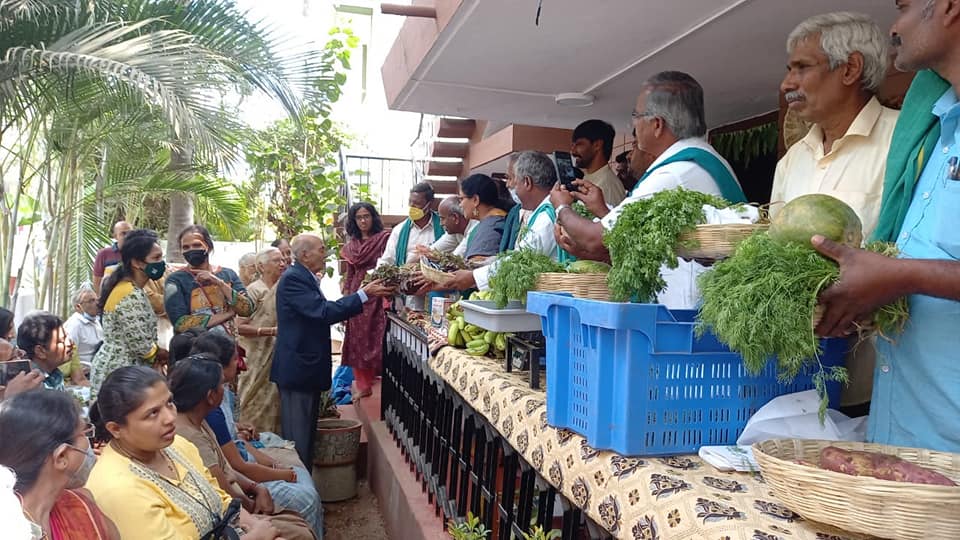
The enabling factor for such fruitful cooperation was the “establishment of a connection” between consumers and producers orgs – we are doing this via events, through consumer education, consumer interactions, farm visits. We don’t see consumers as passive recipients here, they are playing a role and we see them as partners.
Question 2: what are the main needs of smallholder food producers and their organizations to scale up agroecological transformations in everchanging contexts? How could partners and Civil Society Organizations jointly address the gaps and challenges for food system transformation?
Smallholders require many things-
1. Handholding for learnings processes- this is a place where there is a great opportunity for CSOs, producers orgs, govts, and research orgs to collaborate. Knowledge production is one of the main ingredients of agroecology – since Agroecology is not input heavy, It is knowledge heavy. However to get to levels of high knowledge, there is a long process of training and learning. We have seen examples in countries like Cuba, and in India’s Andhra Pradesh, where farmer to farmer models are working well, there are also successful farmer field school models by the FAO.. we must emphasize the importance of these.
2. Input production: producers organisations can be supported to produce such bio-inputs for other farmers and their groups.
3. Certification
4. Marketing – this is a major one and one that I previously discussed. As producers we have many needs- for e.g funding for infrastructure- we must recognize that producers organizations don’t have resources. Especially farmers organizations in countries like India find it very difficult to access resources at all. Moreover, as producer organizations, we also struggle with technical aspects of fund raising since we don’t. have such paid staff to do work like this. Its important to put in place funding, and other forms of support, especially for things like infrastructure. For example, in our marketing collective called Namdu that I spoke about previously, we don’t have warehousing, or refrigeration,- this is leading to massive losses but we have no option. It would be very important to receive such support in order to enable such agrooecological transitions.
